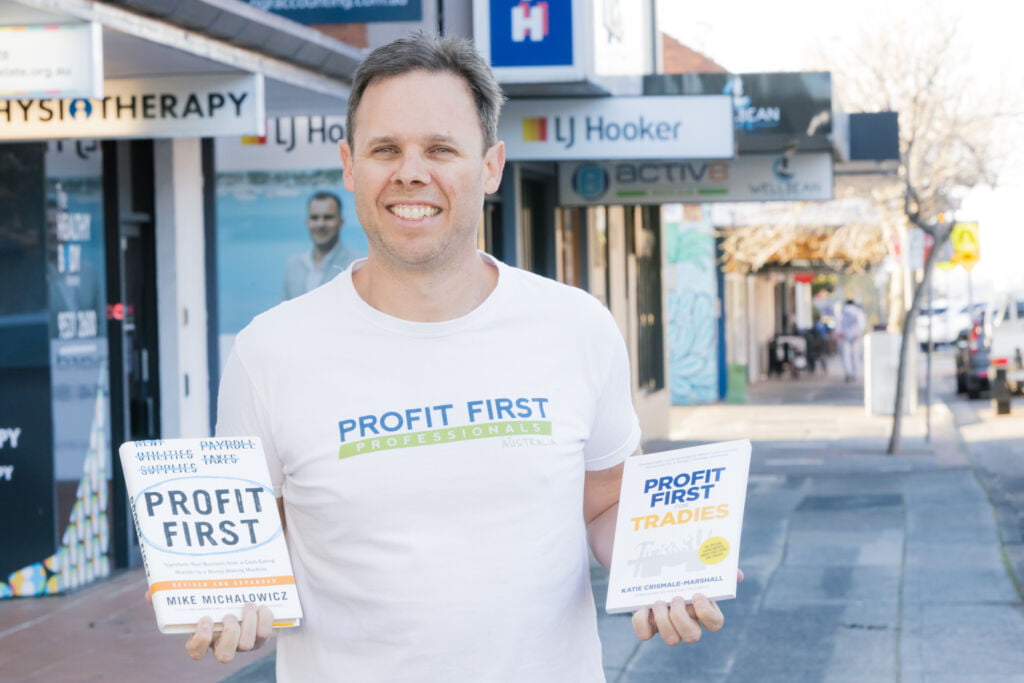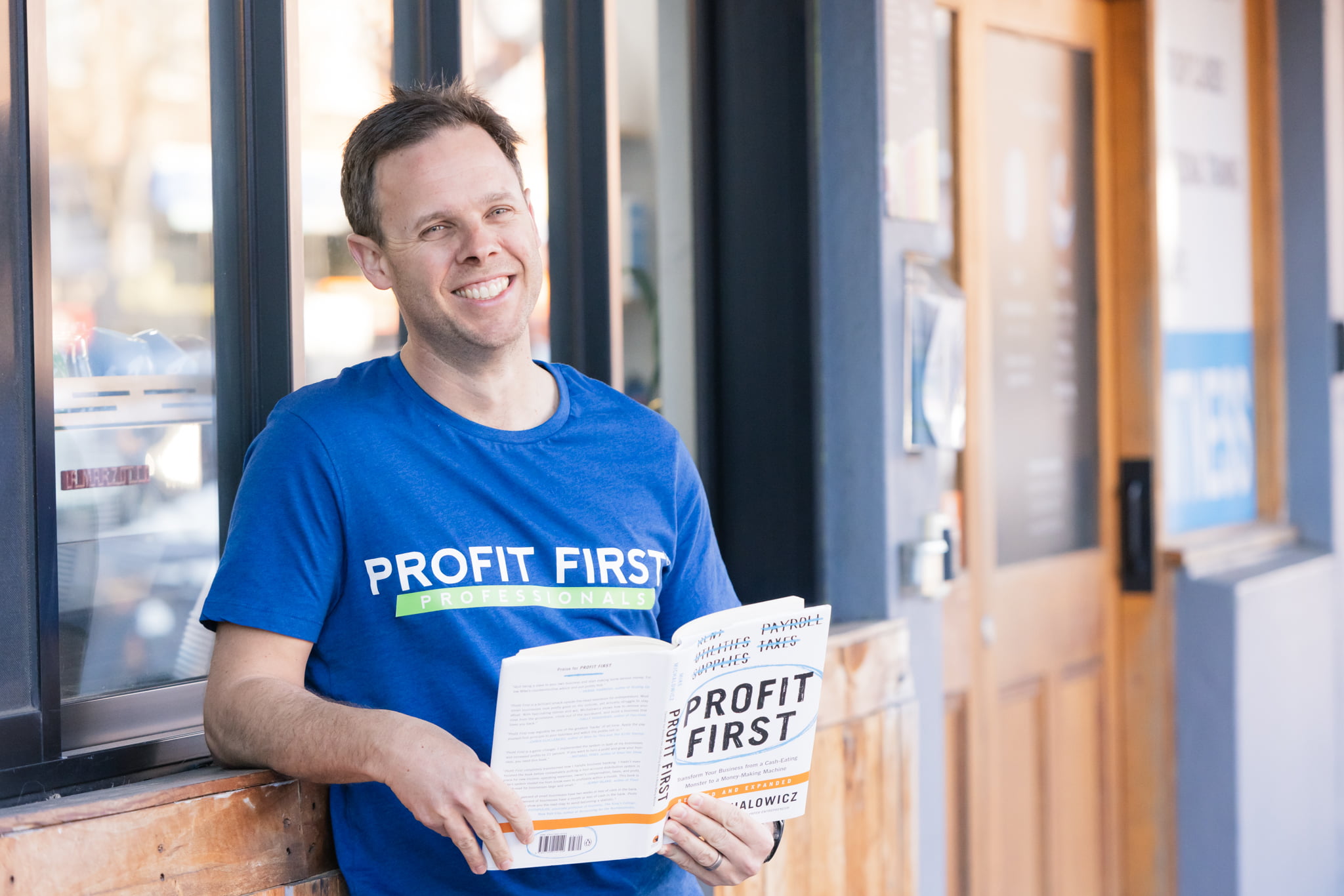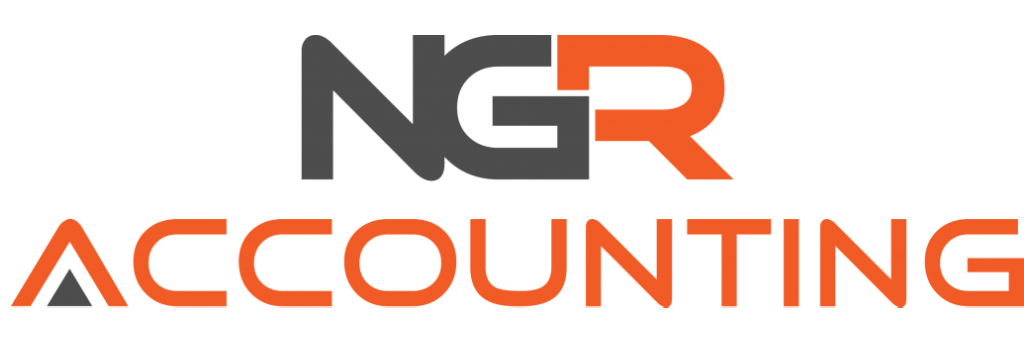
Do you feel like you’re not getting anywhere with your Business?
or
Are you ready to take your Business to the next level?
Profit First is a concept by Mike Michalowicz, and it’s a cash flow system focused on finding the Profit in your Business.
We want to help you build a successful business, and with that we have the following solutions for you to choose from:

Hey guys, Nathan here! I am so happy to introduce you with this great course, focused on providing you with the introduction you need to Profit First to get you started.
With 6 Modules – and 1 Bonus Module, we cover the basics you need to begin your Profit First Journey:
- Introduction to Profit First (with bonus Video with Mike Michalowicz, Profit First Author!)
- The 4 Core Principles of Profit First
- How to start your Profit First journey
- TAPs (Target Allocation Percentages) and your CAPs (Current Allocation Percentages).
- Frequently Asked Questions (with bonus Video with Profit First Professionals Laura Elkaslassy, CEO of Profit First Australia New Zealand; Katie Chrismale-Marshall, Author of Profit First for Tradies; myself and Mike Michalowicz).
Profit First Coaching


NGR Accounting’s Profit First Packages
So, you’ve finished our Profit Generator School… what’s next?
You’ve already implemented Profit First, but want more help?
These packages have been built with you in mind, to take that next step in your Profit First journey.
Profit First
Kick Starter
For beginners
$ 2,500 + GST
Features
- Short and sharp implementation
- 4 Week Course
- Profit First Assessment
- Profit First roll-out plan
- Bank Account recommendations
- Weekly 1:1 Calls (over the 4 week program)
- FREE ACCESS to the Profit Generator School Course and Community
Let’s Go Profit
Accelerator
For startups
$ 5,500 + GST
Features
- 3 month engagement
- 6 x weekly sessions with Nathan Rigney and Craig Minter
- Review of Accounting Software
- Instant Assessment Calculations
- Rollout Plan Creation – with you
- FREE Access to the Profit Generator School Course and Community
- Access to the Profit First Prophet Platform
- Access to Support throughout the program
Keep Going – The Road to Permanent Profit
For business owners
$ 800 + GST
/month
Features
- Ongoing access to Profit Generator Profit First Online course
- Ongoing Access to The Profit First Prophet Platform
- Monthly 1:1 coaching with Nathan Rigney, The Profit Generator, to work through your Profit First journey and other general business related matters
- Access to Support throughout the program

